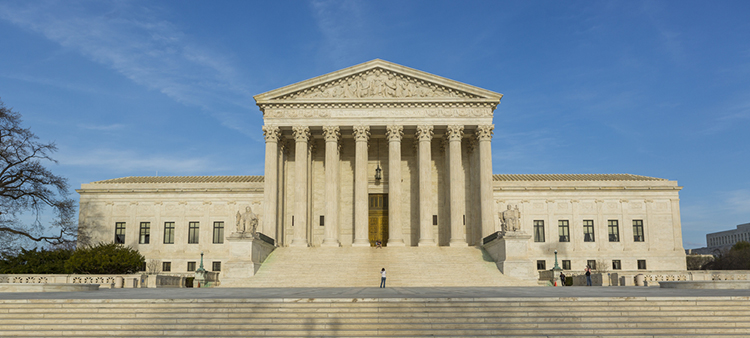Supreme Court can 'botch the truth,' review finds; law prof sees need for technical advisers

Rob Crandall / Shutterstock.com
The U.S. Supreme Court needs technical help, according to Fordham law professor John Pfaff.
In an article for the New York Times, Pfaff points to a ProPublica review of two dozen Supreme Court cases that cited facts about the outside world. The publication found seven errors in which the justices relied on false, misleading or unsupported factual claims and statistics.
“The justices can botch the truth, sometimes in cases of great import,” ProPublica asserts in the headline to its story.
In some cases, justices apparently introduced errors in their own research. In others justices relied on “false or deeply flawed” assertions in amicus briefs, according to ProPublica. Some of the mistakes were “technical or arguably minor.”
Pfaff sees a need for action to help the Supreme Court with its research. He points to one proposal in the 1980s by legal scholar Kenneth Culp Davis, who suggested the court create a research organization similar to the Congressional Research Service.
Another idea, Pfaff says, it to establish a group of technical advisers to the court composed of social scientists and statisticians who could help with empirical evidence.
Short of those steps, the justices could also hire clerks with empirical training, Pfaff suggests.
The ProPublica article begins with a summary of an error in the 2011 decision NASA v. Nelson, in which the Supreme Court upheld background checks for NASA employees. The court’s opinion relied on an amicus brief to declare that 88 percent of private companies conduct background checks.
When ProPublica asked the group that wrote the amicus brief about the source of the statistic, the group “offered a variety of explanations, none of which proved true,” the article says. The group wasn’t able to back up the figure.
In a 2013 case, Shelby County v. Holder, the court ruled that a Voting Rights Act preclearance formula was unconstitutional, given advances in voting rights. The majority opinion used erroneous data to make claims about the rates of voter registration among blacks and whites in six southern states, according to ProPublica. The opinion had relied on a report by the Senate Judiciary Committee that used Census Bureau data, but staffers who created the report wrongly used a census bureau category that lumped together whites and Hispanics who identify themselves as white.
ProPublica’s findings are troubling but not particularly surprising, Pfaff says. “Empirical facts are central to what the court does,” he writes. “but its members lack expertise.”
See also:
ABAJournal.com: “Justice Department discloses ‘several significant errors’ in information provided for SCOTUS case”



